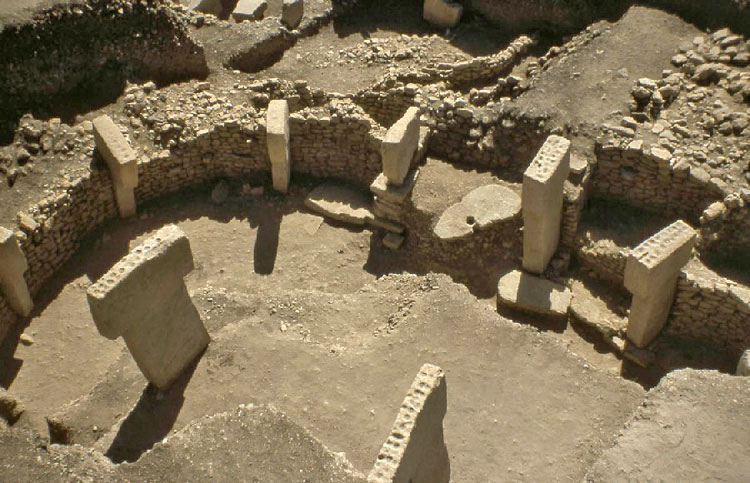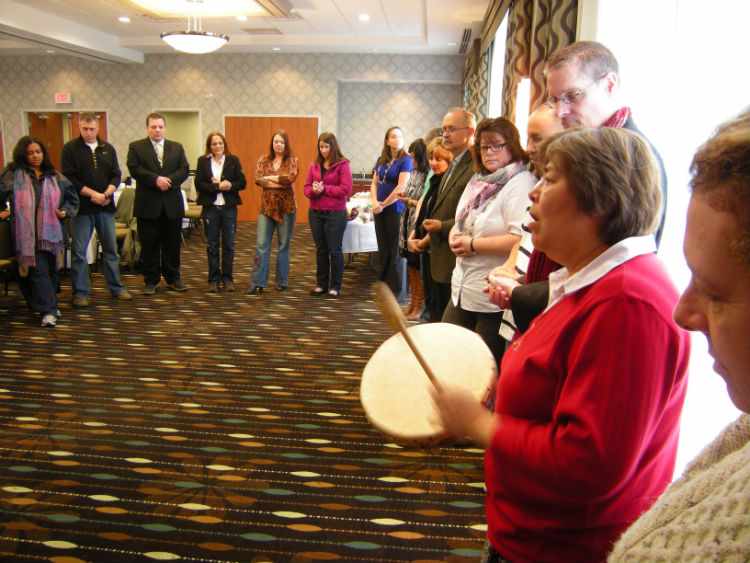
- Ralph Benmergui
It's
easy to say that religion causes war. Ayn Rand, Karl Marx and Richard Dawkins
have all done so. There's plenty of evidence to back that thesis, too -
historical horrors ranging from the Crusades to 9/11 all had religious motives.
But what of the wars that didn't? The Rwandan genocide was tribal. World Wars I
and II were about power and conquest. Conquistadors might have told themselves
their goal was to bring God to the heathens, but they sure squeezed in a lot of
rape, pillage and plunder along the way, didn't they?
Beyond
this lies the fact that war is not a uniquely human enterprise; other species
ranging from ants to lions and hyenas engage in mortal combat, too. In all cases, war is always about the same
things – dominance and resource access. While
religion makes for a pretty unassailable justification for conflict (mortals
can’t argue with the will of God), it’s one not suitable to that application.
 The
sad irony is that the core teachings of all great religions try to steer people
in the opposite direction. The Golden Rule pops
up in faiths across the spectrum of time and geography. In fact, there’s an argument to be made that religion
played a role in nurturing civilization, lighting the candle of humanity in
our dark paleomammalian hearts. Is it possible that religion, in its purest
sense, is about bringing people together rather than setting them against each
other?
The
sad irony is that the core teachings of all great religions try to steer people
in the opposite direction. The Golden Rule pops
up in faiths across the spectrum of time and geography. In fact, there’s an argument to be made that religion
played a role in nurturing civilization, lighting the candle of humanity in
our dark paleomammalian hearts. Is it possible that religion, in its purest
sense, is about bringing people together rather than setting them against each
other?
Last
Friday, I had the great pleasure of partaking in The New Sabbath Project
hosted by two wonderful human beings, Ralph Benmergui and Cortney
Pasternak. They invited a diverse group
of people with different lineages and differing trajectories into their home for
the lighting of candles and the breaking of bread. It was a cold, dark autumn evening, but
within those walls was a space filled with warmth and light. Ralph and Cortney billed the dinner as a
night of food and prayer; for me, what they created was community.
 As
an ice-breaker, Ralph had everyone explain the origin of their family name. Through the process, we got to understand each
other not just as faces and titles, but as threads of the experiences of
generations, woven into the fabric of each individual. By adding dimension to each name, we all
became a bit more humanized to each other.
This became critical, later on.
As
an ice-breaker, Ralph had everyone explain the origin of their family name. Through the process, we got to understand each
other not just as faces and titles, but as threads of the experiences of
generations, woven into the fabric of each individual. By adding dimension to each name, we all
became a bit more humanized to each other.
This became critical, later on.
After
appetizers, we moved to the table, where Ralph explained the rituals of Shabbat. As he unspooled the rules, though, Ralph
explained the why – what the bread
symbolized, what the salt symbolized, what the candles represented. By the time he began the incantation (given
in Hebrew), we had already, through our opening up to each other and under the
roof of our hosts, created a shared space.
Judaism
is an ancient religion that has preserved the same traditions for thousands of
years, from the days before empires.
Through the symbolism of the Shabbat ritual, but especially through the
concept of shared food and light an image was invoked for me of people at the dawn
of civilization huddling together around a campfire, safe from a dark and
threatening world.
 Then,
in another ancient tradition, Ralph kicked off the act of giving blessings – to
or for people, in commemoration of places or events, an evocation of empathy
for the world beyond our created space.
It dawned on me as we went around the room that the act of giving
blessings was a way of engendering empathy for others and gratitude for the
things we have (instead of fueling resentment over the things we don’t). These are fundamental concepts to Positive Psychology, a
newish field that seeks to build social/emotional skills and emotional
resiliency in people.
Then,
in another ancient tradition, Ralph kicked off the act of giving blessings – to
or for people, in commemoration of places or events, an evocation of empathy
for the world beyond our created space.
It dawned on me as we went around the room that the act of giving
blessings was a way of engendering empathy for others and gratitude for the
things we have (instead of fueling resentment over the things we don’t). These are fundamental concepts to Positive Psychology, a
newish field that seeks to build social/emotional skills and emotional
resiliency in people.
Militaries use
Positive Psychology as way of empowering their soldiers, just as a growing
number of workplaces are employing its principles to foster healthier and more
productive employees. A religious ritual
that predated history had already mastered a key concept of psychological well-being
millennia before science had even begun to explore how the mind works.
In
the discussion that followed one of the guests, Sylvia, talked about a new job
working with Native women. Each
work day, she explained, began with a “circle” – the creation of a space of
comfort in which people could talk about their feelings. For the first few days Sylvia didn’t get the
point – they were there to work, not to have a hug-in. By mid-week however, it made sense; when you
understood the emotional state of a person at the start of the day, it informed
all your interactions going forward.
There were less awkward communication problems and more appropriate
supports, leading to improved outcomes.
The
notion of the shared space and even many of the rituals involved in creating
that space mirrored the traditions of Shabbat.
It wasn’t just one religious faith that had landed on these practices;
they seemed to be attached to religions from around the world. This was appropriate – around the table were
lineages representing Europe, Asia, Africa and pre-conquest North America. The experience of the New Sabbath Project
knitted together each of these histories into one shared community that transcended
any one of our narratives.
At
Ralph and Cortney’s table there were laughs and tears; deeply personal stories,
tentative aspirations and questions of all kinds were shared. Because of the nature of the space we had created,
together, there was no judgment. There
was food (including Cortney’s amazing
bread), there was light and above all, there was community. Because of this, we all felt open to be
ourselves, to speak plainly and honestly, as well as to listen. It was surprising to
many of us just what a fresh experience that was.
When
the evening was done and the candles extinguished, we all parted and headed
back into the darkness alone, yet filled in many ways. The threads of our shared experience, however,
weren’t cut – they will continue to accompany each of us on our journeys,
encouraging us to seek out and weave even more lineages into our communal
tapestry.
As
the Rands, Marxes and Dawkinses of the world focus on a clinically pragmatic
view of the world, they are neglecting a key component of the human experience –
the connective tissue of community that gives us cause to come together and
create a whole that’s more than the sum of its parts.
At
its root, then, perhaps religion isn’t a thing designed to justify conflict and
dominance; maybe it’s the thing that’s meant to bring us together. So long as we keep a candle burning somewhere
out there, that hope remains.



No comments:
Post a Comment